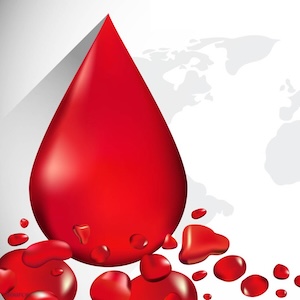Reviews
Vol. 3 No. 3 (2024)
The use of creatine and the development of deep vein thrombosis. A scoping review

Publisher's note
All claims expressed in this article are solely those of the authors and do not necessarily represent those of their affiliated organizations, or those of the publisher, the editors and the reviewers. Any product that may be evaluated in this article or claim that may be made by its manufacturer is not guaranteed or endorsed by the publisher.
All claims expressed in this article are solely those of the authors and do not necessarily represent those of their affiliated organizations, or those of the publisher, the editors and the reviewers. Any product that may be evaluated in this article or claim that may be made by its manufacturer is not guaranteed or endorsed by the publisher.
Received: 16 June 2024
Accepted: 24 October 2024
Accepted: 24 October 2024
5461
Views
510
Downloads
Similar Articles
- Paolo Simioni, Vittorio Pengo, Paolo Prandoni, Thrombosis and hemostasis at the University of Padua: a reappraisal on the occasion of its 800th year of history , Bleeding, Thrombosis and Vascular Biology: Vol. 1 No. 3 (2022)
- Francesco Marongiu, Elvira Grandone, Silvia Marongiu, Antonella Mameli, Doris Barcellona, Stroke in women: anticoagulation in a complicated puzzle , Bleeding, Thrombosis and Vascular Biology: Vol. 3 No. 2 (2024)
- PO38 | Rates of hemorrhagic events and hemodialysis circuit thrombosis in patients with end-stage renal disease on hemodialytic treatment receiving a factor-XI inhibitor: a systematic review and meta-analysis , Bleeding, Thrombosis and Vascular Biology: Vol. 4 No. s1 (2025)
- Bianca Clerici, Mariangela Scavone, Gian Marco Podda, Recent advances in classic heparin-induced thrombocytopenia (HIT), autoimmune HIT, spontaneous HIT, and vaccine-induced immune thrombotic thrombocytopenia , Bleeding, Thrombosis and Vascular Biology: Vol. 3 No. 2 (2024)
- PO35 | Cerebral veins thrombosis in patients with and without myeloproliferative neoplasm: a real life retrospective monocentric study , Bleeding, Thrombosis and Vascular Biology: Vol. 4 No. s1 (2025)
- CO04 | Direct oral anticoagulants in antiphospholipid syndrome: a single center real-life experience , Bleeding, Thrombosis and Vascular Biology: Vol. 4 No. s1 (2025)
- Maria J. Fernandez Turizo, Rushad Patell, Jeffrey I. Zwicker, Identifying novel biomarkers using proteomics to predict cancer-associated thrombosis , Bleeding, Thrombosis and Vascular Biology: Vol. 3 No. s1 (2024)
- CO05 | Long-term management of upper extremity catheter-related thrombosis in female patients with cancer: a retrospective cohort study , Bleeding, Thrombosis and Vascular Biology: Vol. 4 No. s1 (2025)
- CO07 | Real word management of anticoagulant therapy in brain metastasis: moving toward a multidisciplinary approach in complex cases , Bleeding, Thrombosis and Vascular Biology: Vol. 4 No. s1 (2025)
- Niccolò Bitto, Vincenzo La Mura, Anna Ludovica Fracanzani, Armando Tripodi, Is non-alcoholic fatty liver disease a prothrombotic risk factor? , Bleeding, Thrombosis and Vascular Biology: Vol. 2 No. 2 (2023)
You may also start an advanced similarity search for this article.










